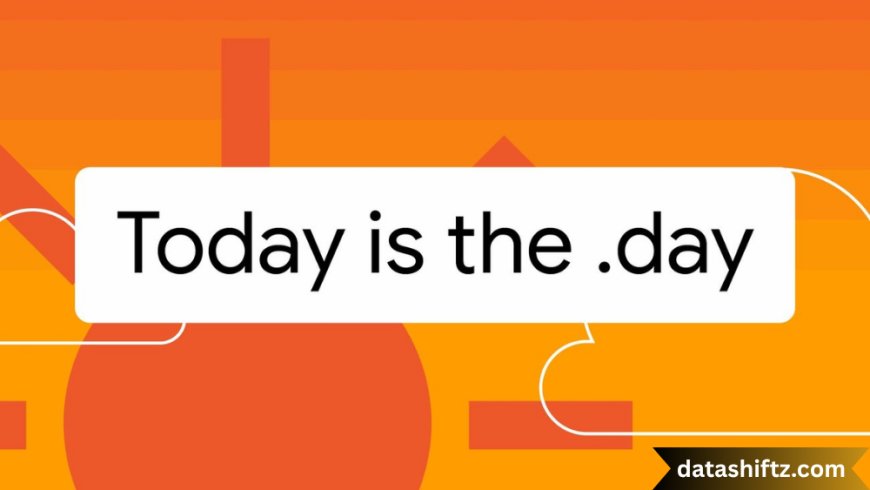What Is Today? — A Deep Dive Into the Meaning, Significance, and Power of the Present Moment

Introduction
“What is today?” is a question that may seem simple at first glance. But beneath its everyday use lies a profound and multilayered concept. “Today” is more than a date on the calendar. It is a temporal anchor, a philosophical query, and a call to action. Whether viewed through the lens of science, spirituality, productivity, or mindfulness, understanding “today” helps us appreciate life more deeply.
In this comprehensive blog post, we explore the full meaning of “today”—as a moment in time, a cultural construct, a spiritual principle, and a personal opportunity. We’ll examine its role in different fields, from calendar systems and psychology to technology and philosophy, and provide insights into how to make the most of it.
The Calendar Definition of Today
What is Today in the Literal Sense?
At its core, "today" refers to the current day—the 24-hour period beginning at midnight and ending at 11:59 PM. It is defined by:
-
The Gregorian calendar, which is used globally.
-
Time zones, which may vary the start and end of "today" depending on location.
-
Cultural variations, where religious or lunar calendars offer different definitions.
For example:
-
In the Gregorian calendar: Today might be July 21, 2025.
-
In the Hebrew calendar: It could be Tammuz 25, 5785.
-
In the Islamic calendar: It might be Dhul Hijjah 25, 1446 AH.
“Today” Across Major Calendar Systems (As of July 21, 2025)
| Calendar System | Date | Notes |
|---|---|---|
| Gregorian | July 21, 2025 | Most widely used system |
| Islamic (Hijri) | Dhul Hijjah 25, 1446 AH | Based on lunar cycle |
| Hebrew | Tammuz 25, 5785 | Used in Jewish tradition |
| Hindu (Panchang) | Sawan Krishna Paksha 10 | Based on lunar and solar movements |
| Chinese Lunar | 7th Month, 15th Day | Used in traditional Chinese culture |
The Philosophical and Psychological Meaning of Today
“Today” as a Concept of Time
Philosophers and thinkers have long reflected on the meaning of “today” as the only moment that truly exists.
“The past is a ghost, the future a dream, and all we ever have is now.” – Bill Cosby
While the past is gone and the future is unknown, today—or the present moment—is all we truly possess. This idea is the foundation of mindfulness practices and modern psychological therapy like CBT (Cognitive Behavioral Therapy).
Philosophical Insights About “Today”
-
Søren Kierkegaard – Emphasized the importance of living fully in the moment.
-
Marcus Aurelius – Urged people to focus on present action rather than future worry.
-
Thich Nhat Hanh – Taught that peace is found only in the present.
-
Eckhart Tolle – Author of The Power of Now, highlighting “today” as the path to spiritual awakening.
Psychological Benefits of Living for Today
-
Reduced anxiety about the future
-
Greater focus on goals and values
-
Improved relationships through presence and attentiveness
-
Increased gratitude and emotional well-being
Today in Modern Life – Productivity, Culture, and Digital Life
The Modern View: “What Can I Do Today?”
In our fast-paced society, “today” is often seen through the lens of productivity. It represents a block of time to achieve, accomplish, and act.
Daily Productivity Tools and How They Structure “Today”
| Tool/Method | Purpose | Example Use |
|---|---|---|
| To-Do Lists | Task organization | Checking off tasks for the day |
| Time Blocking | Scheduling hours | 9 AM–10 AM: Emails, 10–12: Project work |
| Digital Calendars | Managing meetings | Google Calendar, Outlook |
| Mindfulness Apps | Anchoring in the moment | Headspace, Calm |
| Journals/Planners | Goal-setting and reflection | Daily Stoic Journal |
The Role of Culture in Defining “Today”
In different societies, “today” can be:
-
A day of worship (Sunday, Friday, or Saturday)
-
A day of rest or celebration
-
A workday or a weekend
-
A day marked by festivals, events, or national significance
Examples of “Big Todays” Globally:
-
Independence Day (July 4) in the USA
-
Diwali in India
-
Eid al-Fitr in Muslim nations
-
New Year’s Day worldwide
These are days when the word "today" carries immense cultural weight.
The Impact of Technology on Our Sense of Today
In the digital age, our perception of “today” has become increasingly fragmented due to:
-
24/7 news cycles blurring time
-
Global connectivity shifting day/night boundaries
-
Instant gratification culture pushing us to focus only on now
While this creates efficiency, it also leads to burnout, FOMO (fear of missing out), and time distortion.
How to Make the Most of Today: Practical Tips
Living in the present doesn't mean ignoring your goals or neglecting planning. Instead, it means fully engaging with the time you have right now.
10 Ways to Own Today
-
Start with intention – Set a daily focus or mantra.
-
Practice gratitude – List 3 things you’re thankful for today.
-
Limit multitasking – Do one thing at a time with full attention.
-
Take mindful breaks – Pause to breathe, stretch, reflect.
-
Connect with others – Call a friend, help someone, smile more.
-
Avoid digital overload – Schedule screen-free times.
-
Eat and rest consciously – Nourish your body and sleep well.
-
Write in a journal – Reflect on how your day went.
-
Learn something new – Read, listen to a podcast, explore.
-
End with peace – Acknowledge what you achieved without judgment.
Morning vs Evening Routine for a Better Today
| Time of Day | Action | Benefit |
|---|---|---|
| Morning | Wake early, meditate, plan goals | Sets tone for a focused day |
| Midday | Eat mindfully, short walk | Boosts energy and clarity |
| Evening | Journal, relax, limit screens | Prepares for restful sleep |
Conclusion
So, what is today?
It is now—a fleeting yet powerful unit of life. Whether you use it to reflect, achieve, love, learn, or simply breathe, today is a gift that deserves your full presence.
Understanding today in all its dimensions—scientific, philosophical, cultural, and personal—can enrich your life in immeasurable ways. It's not just about what the date is. It’s about what you do with it.






























